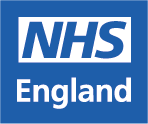Transforming Primary Care in London: General Practice - A Call to Action questionnaire
Overview
‘Transforming Primary Care in London: General Practice - A Call to Action’ sets out the challenges facing general practice in London, and the priorities that doctors and patients have told us are important to improve.
Health and care services provided by GPs and practice nurses are the cornerstone of the NHS - 90% of patient contact with the NHS takes place in general practice. High quality general practice provides a holistic approach to our care, from preventing illness and diagnosing problems, to treating diseases and managing long term conditions. However, the model of general practice that has served Londoners well in the past is now under unprecedented strain. There are significant challenges that must be addressed. Population growth and the complexity of serving larger numbers of patients with long term conditions are driving up demand and general practice is struggling to respond effectively.
London has a growing and ageing population and we are seeing an ever-increasing number of patients suffering from multiple long term conditions. London has some stark health inequalities between boroughs and variations in the quality of provision of across the city. We have relatively high numbers of small practices, some of which are struggling to offer the same access and range of services as larger or federated practices. We are also acutely aware that Londoners overall satisfaction levels with primary care is lower than in other areas of the country and that some Londoners can be particularly frustrated when they try and access services in ways that are more convenient to them.
There is a growing consensus amongst the medical profession that London’s primary care services are unsustainable unless we make big changes to the way they are organised and run. London needs solutions that will sustain primary care for the next 50 years, rather than small incremental changes.
NHS England (London Region) will not prescribe the future model of primary care. Different solutions will suit different communities in London. We will however work closely with GPs to support them in making positive changes and have already engaged with London Clinical Commissioning Council, the RCGP and Londonwide LMCs to develop and discuss the key themes in this report.
We will use the feedback we receive from GPs, patients and other stakeholders to develop a set of proposals describing the service offer that we believe all practices would like to provide and that all Londoners should have access to. The service offer will focus on three aspects of care: accessible care, proactive care and coordinated care. It will be published in January and will undergo extensive engagement with practices, patients and other stakeholders.
You will see that ‘Transforming Primary Care in London: General Practice - A Call to Action’ poses some questions which we would welcome your feedback on.
Please also give feedback on our London – A Call to Action document, which describes the significant challenges that we must address in order to sustain a high quality, free at the point of need, health and care system in London.
Audiences
- Academic/professional institutions
- Advocacy or support organisations
- All NHS England Staff
- Allied health professionals
- Area Team directors
- Art therapists
- Care Quality Commission
- Care-givers
- Carers
- Charities
- Childcare providers
- Chiropodists/podiatrists
- Clinical psychologists
- Clinicians
- Commissioners
- Community groups
- Community healthcare trusts
- Deaneries
- Dentists
- DH third sector strategic partners
- Diagnostic radiographers
- Dietitians
- Directors of public health
- Doctors
- Drama therapists
- Employee representatives
- Employer representatives
- Foundation trusts
- GPs
- Health and Social Care Information Centre
- Health and Wellbeing boards
- Health care assistants
- Health Education England
- Health Protection Agency
- Health visitors
- Healthcare scientists
- Healthwatch (national and local)
- Higher education institutions
- Informatics professionals
- Information professionals
- Information providers
- Local authorities
- Local Government Association
- Managers
- Mental health trusts
- Midwives
- Monitor
- Music therapists
- National directors
- National Institute for Health and Care Excellence
- NHS Trust Development Authority
- Nurses
- Occupation therapists
- Ophthalmic practitioners
- Orthopists
- Orthotists
- Paediatric neuropsychologists
- Paramedics
- Patients
- Pharmacists
- Physiotherapists
- Prosthesists
- Regional directors
- Regulatory bodies
- Responsible officers
- Retailers
- Royal Colleges
- Service providers
- Service users
- Social care providers
- Speech and language therapists
- Strategic clinical networks (SCNs)
- Suppliers
- Therapeutic radiographers
- Trade unions
- Tribunal service
- Voluntary groups
Interests
- NHS England
- Primary care

Share
Share on Twitter Share on Facebook